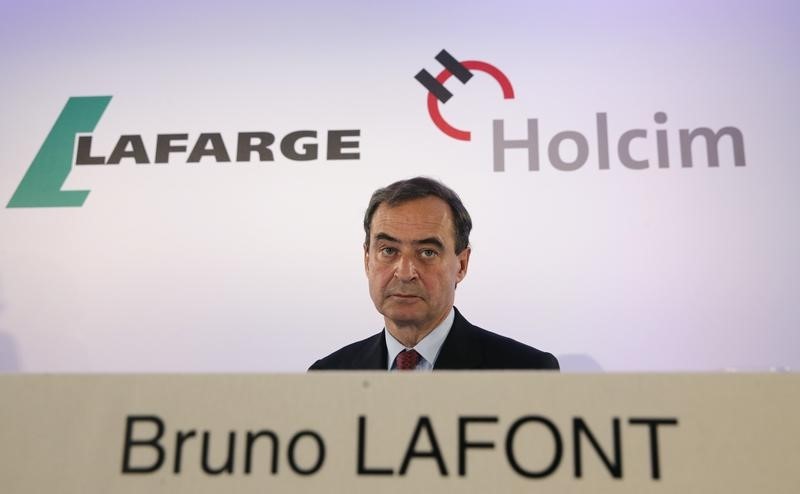By Padraic Halpin
DUBLIN (Reuters) - Irish building supplies group CRH has agreed to pay 6.5 billion euros ($7.4 billion) for assets Lafarge and Holcim were obliged to sell ahead of their planned merger.
CRH, which said on Sunday it would fund the deal with cash, new debt and a 9.99 percent equity placing, beat a consortium led by Blackstone, whom several people familiar with the matter told Reuters were also in the running.
CRH, already the United States' leading producer of asphalt for highway construction, said in a statement that a stock market announcement setting out the full details of the acquisition would be released as soon as possible.
France's Lafarge and Swiss peer Holcim announced merger plans last year, hoping to cut costs and tackle overcapacity and weak demand. The new company will be the world's biggest cement maker with around $44 billion in annual sales.
The two firms have had to sell assets to win approval from competition regulators for the merger.
In a conference call with reporters on Monday, the chief executives of the merger partners said the CRH deal price included the assumption by the Irish company of about 1.3 billion euros of debt.
The sale ensured their tie-up was on track for completion in the first half of 2015 with the vast majority of the assets they needed to sell now placed with buyers, they said.
Lafarge CEO Bruno Lafont said the CRH offer "was the best, both on the contractual side and on price."
The Blackstone consortium, which also includes Cinven (CINV.UL) and Canadian pension fund CPP, bid 5.5 billion euros, a second source said.
A person familiar with the process had said CRH had a better opportunity to benefit than buyout groups because it could integrate the assets into its own business, and could therefore offer a higher price.
Holcim and Lafarge initially received more than 60 tentative bids from industry and private equity firms for some or all of the assets, which they must sell before completing the merger.
CRH, whose cement operations represent about 15 percent of earnings, embarked on its own disposal plan last year, one of the first steps Albert Maniford took as the new chief executive.
The Dublin-based group, which in recent years has followed a strategy of making smaller bolt-on acquisitions, said last year it also had the capacity to spend some 1.5 billion euros on deals going forward with the cash on its balance sheet.

($1 = 0.8843 euros)